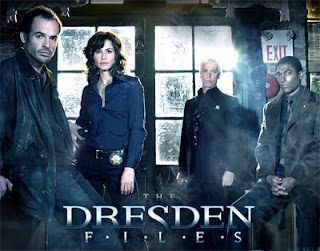I discover the most marvelous links over at Jane Friedman's blog. Today she introduced a terrific article by Josh Swiller over at glimmertrain.com entitled
Twelve Tips on Writing. Josh's advice resonated with me so here is my paraphrase of his 12 tips, filtered through my own experience.
1) Learn to sit alone in a room
Recently I was on vacation and found myself waiting for a friend while they went shopping. Having nothing to do (I'm not great at shopping) I pulled out the pad of paper I keep in my purse, found a pen that worked (no small feat), and began writing. My friend came back about 20 minutes later and wanted to leave and I had to say, "Sure, just give me a few minutes" because I'd caught an idea and wanted to put it down on paper.
Perhaps I should go shopping with friends more often ...
My point is ... I do have one, honest ... that I'm mildly disagreeing with Josh Swiller on this one. He writes:
Tobias Wolff once said, "writing is learning to sit alone in a room." I couldn't agree more. If you feel you have better things to do with your time than sitting alone in a room, I sincerely applaud you. Go and do these things!
Often when I'm alone in a quiet room I find it difficult to concentrate (I know Josh didn't say the room had to be quiet). Right now I have my window open and the sounds of construction are drifting through. I have a box fan on beside me (my apartment is like a greenhouse in the summer). For me this is quiet. Almost too quiet. Often I'll put on music or a TV show I've watched a bizillon times (so I don't feel the need to watch it). I like, and often
need, background noise. Put me in a silent, bare, room all by myself and I doubt I'd be able to write a word, my thoughts would babble and become static.
Also, I do like writing surrounded by other people. In coffee shops for instance. Or surrounded by cats. (Preferably napping cats, otherwise they want to be held and petted and fussed over.)
Color me strange. :)
2) Remove all distractions from your writing area
Great advice! What will count as a distraction differs from person to person but, certainly, put your phone on vibrate and leave it in another room. You know what distracts you from writing; whatever it is remove it from your writing area.
3) Daydream before you write
Before you sit down to write put aside a few minutes for daydreaming. Use this time to scribble down your
uncensored thoughts.
4) Set aside a space for writing
Have a designated spot that is your writing place. You can have more than one and it doesn't always have to be at the place you live. You could write at a library, a coffee shop, a park, or in your car. Just pull over somewhere scenic and write.
The important thing is "that there's a certain place that has creative power for you because something about it makes your brain more cooperative to the nefarious demands writing makes".
(Sometimes, though, I think it helps to write in the same spot each day. That way, if you do write in the same place at the same time each and every day you will feel odd
not writing there. Rather than it being something you're tempted to avoid, it will be something your mind
wants to do.)
5) Write at the same time every day
I find it easiest to write when I first wake and dream fragments still cling to me. Other people like to wake up, go through their email, check Twitter, and so on, and then shut themselves off from the world to write. Whatever works for you.
The important thing is that you write at the same time each day. After a few weeks it will become habitual and, when that happens, you will feel odd
not writing during that time. Personally I've found these two points--(4) and (5)--to be of enormous help.
6) Set aside at least 2 hours to write
7) Yes, really, 2 hours
8) Respect the process
No matter how blocked you feel, and even if you think your writing is so bad you might as well just give up for the day--after all, why waste 2 whole hours if you're writing drek--resist the urge to do something else. Respect the process. Set aside 2 hours and, no matter what,
write. No excuses.
This advice--which, again, is Josh Swiller's advice, I'm just paraphrasing it and running it through the filter of my experience--seems to mesh with Jerry Seinfeld's
Chain Method (
How To Write Every Day: Jerry Seinfeld And The Chain Method). Briefly: When you meet your writing goal for the day mark an "X" on your calendar. Try to get a 'chain' of as many unbroken "X's as you can.
9) "Kitchen sink" your first draft
Include everything. If you're not sure whether something belongs, throw it in. This reminds me of Stephen King's advice to writers in his book
On Writing. King writes:
Write with the door closed, rewrite with the door open. Your stuff starts out being just for you, in other words, but then it goes out. Once you know what the story is and get it right — as right as you can, anyway — it belongs to anyone who wants to read it. Or criticize it. (Stephen King, On Writing)
When I write my first draft I write it for me. It is completely personal. When I start my second draft I put on my editor's hat and let my inner critic loose.
It's interesting that Josh mentions it can help to handwrite the first draft; I find that too. For me, the key has been that handwriting my story into a journal prevents me from editing my first draft. I read what I wrote the day before, do slight corrections, and then begin that days writing.
10) Rewriting: Do a bit better each time
Years ago, when I worked in an office, I heard about a principle called "the 85% solution". It was the idea that a lot of folks spend 15% of their time to get a project 85% perfect and 85% of their time trying to get the other 15% right. The best way to do things, we were told, was to spend 15% of our time getting it 85% right and then take a break, come back, and take a second pass at it.
When I first started using this principle in my writing it was a revelation of the heavenly choir variety. As I mentioned, I (try to) completely lock out my inner critic on the first draft then I just concentrate on getting each draft better. Josh writes:
The goal with the next drafts is just to be a little better each time. Don't be chasing perfect sentences and metaphors as beautiful as rainbow moonbeams reflected in baby unicorn eyes. Settle for making each draft a little better. This takes patience because some of these drafts will make you aghast. But if there's a kernel in each that excites you, trust it will bloom in time.
Awesome advice! Now I just need to take it.
11) Don't take your writing too seriously
There are many breathtakingly beautiful things in the world. A baby's smile, tropical fish swimming in crystal clear water suspended over bone white sand. Fractals. Chances are, your writing isn't one of them, but that's fine because it's not supposed to be. Tell a story and tell it as well as you can. Publish it/submit it. Tell another story. And so on.
12) Active voice is best, except when it isn't
Josh writes:
Active voice please. Unless passive would really go better. Then go ahead and use passive.
Thanks for reading. If anyone has any tips they would like to share, please do!
Other articles you might like:
-
Amazon's KDP Select: The Best Long-Term Strategy?
-
Norway Pays Authors $19,000 Per Year
-
Libraries Look To Indie Authors As The Future
Photo credit:
Diegosaurius Rex













